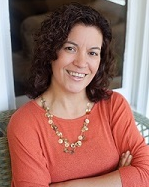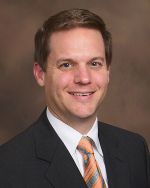ADA Supports PCAST; Offers Additional Guidance
Originally posted at HHTM On November 17, 2015. Reprinted with permission.
LEXINGTON, KENTUCKY — Following their annual meeting in Washington DC, the Academy of Doctors of Audiology (ADA) issued a position statement on the recent PCAST report.[1] In a press release, authored by recently elected ADA president Rita Chaiken, ADA supports the PCAST report because the recommendations “present significant opportunities for audiologists to reach more patients and offer additional compensated services.”
The PCAST position statement outlines ADA’s qualified support of these PCAST recommendations and also provides suggestions to encourage consumers to seek comprehensive evaluation and treatment for suspected hearing and balance disorders.

Kim Cavitt, AuD
In a detailed, 7-page letter to President Obama, out-going ADA president Kim Cavitt, addressed the importance of the delivery of evidence-based preventative, diagnostic and rehabilitative audiologic care, and how this care is instrumental to patient success with any amplification device.
The letter offers broad concurrence to all four of the PCASTs recommendations to the President, along with the following important caveats and considerations:
- Any type of over-the-counter hearing device be very specifically labeled and include a “strong recommendation that a patient seek a comprehensive audiologic evaluation from an audiologist or physician prior to purchase any device….”
- In support of the appropriate use and labeling of PSAPs, ADA advises that PSAPs be labelled with a strong recommendation that the user seek comprehensive audiologic care from an audiologist or physician prior to purchase. Further, ADA recommends that all PSAP products be labeled as “not-FDA registered devices,” and that it develops industry standards sanctioned by the American National Standards Institute (ANSI).
- The letter highlighted the PCAST finding that “64% of people with the most serious hearing loss reported that they could not afford hearing aids” and emphasized the fact PSAPs are not appropriate for many (moderate-severe to profound) of these hearing losses.
- ADA believes all programmable hearing devices sold in the US should be delivered on an open platform, so that any licensed hearing professional can adjust and program them. An open platform format, according to ADA, will result in increased patient access to care, improved buying power and improver portability of care between providers.
- In order to spur more competition in an “insular” hearing aid marketplace, ADA encourages the manufacture of more value-based alternatives offered at a price point similar to what is currently dispensed in both the VA and Big Box retail. Additionally, price should be transparent and itemized to the consumer.
- To address the barriers to hearing device adoption, Medicare Plan B must better align with current best practices in patient care and allow for more direct access to audiologists (through the Audiology Patient Choice Act– HR 2519) and greater reliance on telehealth. According to the letter from Dr. Cavitt these are the types of initiatives that will lead to greater awareness among both the public and medical professionals of the long-term deleterious effects of age-related hearing loss and the importance of early detection and remediation.
Far from Broad Consensus
In a November 12 letter to the president, which was also posted on the Healthy Hearing website[2], Paul Dybala, PhD, outlined four points that he believes PCAST “got wrong about hearing aids.” Below is a summary of his concerns contained in the letter:
- PSAPs generally contain comparatively poorer levels of sound processing technology to modern hearing aids. Thus users of these devices would be less likely to have satisfactory listening experiences due to the lower levels of technology.
- The analogy comparing PSAPs to reading glasses is flawed as most hearing loss is sensorineural, which means that the hearing organ has been damaged and/or non-functional. Therefore, the job of a hearing aid is more complex than just increasing the volume of the sounds sent to the ear.
- The labeling of OTC hearing devices (such as PSAPs) is essentially a non-issue for consumers. Most consumers purchasing PSAPs are not aware of the exact amount of hearing loss they have, so the current system of warning consumers to avoid use with severe hearing loss is somewhat meaningless.
- The vast majority of hearing care professionals already offer a copy of the hearing test results upon request to the consumer. It is standard clinical practice for professionals to provide a copy of the hearing test to the patient at no additional cost. Dr. Dybala goes to say that spending taxpayer dollars to institute legislation to enforce what is already occurring as standard practice would be a waste of time and money.

Paul Dybala, PhD
Additionally, Dr. Dybala made note of the fact that PCAST had no committee members with any extensive experience in the hearing loss or hearing aid fields from industry, clinical, research or consumer perspectives. Thus PCAST lacked any applied or scientific experience with hearing loss and treatment.
Dr. Dybala Offers PCAST the Following Four Recommendations:
- Mandate all health insurance to cover hearing aids as a preventative care measure.
- Support initiatives to promote hearing aids as a healthy choice.
- Mandate a national best practices protocol for hearing aid fittings.
- Mandate package labeling for risk of hearing loss on various consumer electronic devices
Healthy Hearing is not the only organization to oppose the PCAST recommendations to date. The International Hearing Society has also come out to strongly opposes the PCAST recommendations.
*HHTM will continue to monitor and report any press releases and position statements from other professional organizations and industry firms regarding the PCAST report.
Footnotes
- Aging America & Hearing Loss: Imperative of Improved Hearing Technologies.
- Healthy Hearing is a subsidiary of the William Demant Group

